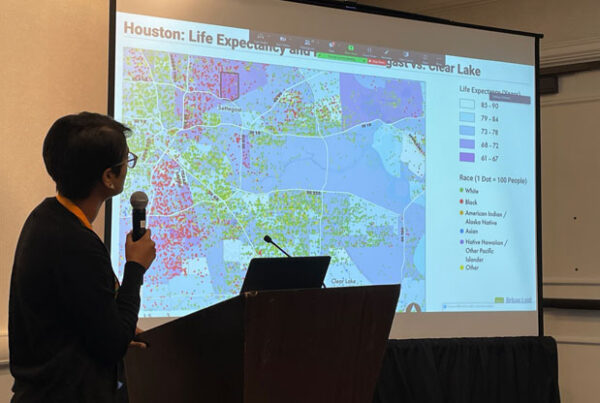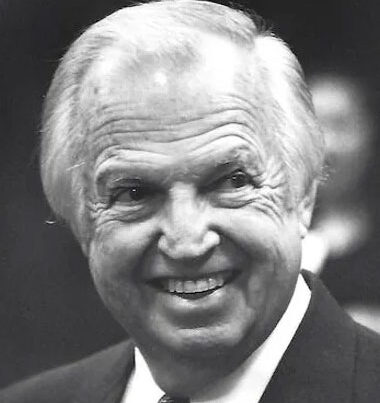 Peter Ballon, a ULI global governing trustee, a member of the Global Board of Directors, and a member of ULI’s Technology and Real Estate Council, begins his two-year term as ULI’s global chair in July. Based in Toronto, he is global head of real estate for CPP Investments. Much of his career has been focused on investing internationally across a broad range of sectors. In addition to Canada, he has been based in the United States, Europe, and Asia.
Peter Ballon, a ULI global governing trustee, a member of the Global Board of Directors, and a member of ULI’s Technology and Real Estate Council, begins his two-year term as ULI’s global chair in July. Based in Toronto, he is global head of real estate for CPP Investments. Much of his career has been focused on investing internationally across a broad range of sectors. In addition to Canada, he has been based in the United States, Europe, and Asia.
What first led you to become involved with ULI?
ULI’s mission and global perspective attracted me to the organization. There are only a limited number of organizations that provide thought leadership on a global basis. As a global investor, the first council I joined was the Global Exchange Council, which resonated strongly with my business. Over time, I became more and more aware of everything else the organization could offer. More specifically, I became aware of ULI’s mission and its relevance far beyond the United States. The mission was not exclusively a U.S. mission; it was a U.S.-based organization that addressed global challenges with a global perspective.
As a Canadian, you are only the second person not from the United States to lead the global organization. [The first was Jeremy Newsum of London in 2009–2011.] What may be the importance of that to Canadian members?
I’m proud to be the first Canadian chair, and I’m also very proud that Toronto’s district council is perhaps one of the most—if not the most—active district councils, which tells you the high level of engagement and relevance that ULI has here in Toronto. The ULI leadership and members in Toronto are a good example of what makes ULI great.
Thankfully, ULI has many dedicated members across the globe, which is what provides the strength to the organization. The challenges that are facing real estate are both local issues and global issues at the same time.
The diversity of ULI allows us to collaborate and share best practices from around the world. There is so much benefit from learning how others have faced a challenge and applying these global lessons locally. To use a cliché, there’s no point reinventing the wheel if another city, sector, or industry has solved a problem elsewhere.
Are there any specific opportunities or challenges that you feel that ULI as an organization is particularly well placed to take the lead on?
I believe that ULI is well placed to take the lead on a variety of opportunities and challenges. But like any organization, ULI needs to focus on the greatest challenges and opportunities of the day and focus on where we can have the greatest impact. Based on feedback that we have received from ULI’s members, there are three challenges and opportunities that currently stand out.
Perhaps the greatest challenge and where real estate has an outsized influence is climate change. The real estate industry in particular can and should play a leading role in taking on that challenge, and ULI can be the thought leader, helping the real estate world address that challenge and turn it from a negative to a great opportunity for all stakeholders in the real estate industry.
Another major global issue is housing or lack thereof. Affordable housing is becoming more and more a challenge as wealth disparity grows. Finding a better way to ensure that more people have access to affordable housing is a goal—and an opportunity—for all real estate stakeholders. Each city has its own unique challenges, but the need for a solution is global and needs to be addressed immediately.
Finally, a third goal which ULI members have told us is among their top priorities is education. An important part of ULI’s mandate is to ensure that we share what we know, but also to ensure that the organization is addressing a wide audience, not solely the preexisting real estate stakeholders. We need to welcome a new, diverse group of members. Diversity, equity, and inclusion are critical to ULI achieving its goals and its broader mandate.
As new global chairman, what is your mission? Is there something that you particularly want to achieve?
ULI is a member-driven organization, so while I do have personal areas of interest, my mission is to focus on leading the organization to achieve its goals. I’m a steward of the organization, and I want to reflect what the organization wants, what its members want. My role is to help ensure that we achieve the goals of our members, which is currently articulated as climate change, affordable housing, and education in achieving ULI’s mission to shape the future of the built environment for transformative impact in communities worldwide.
What are your thoughts as we begin to come out of the pandemic? What are the lessons learned from this historic experience?
There are many lessons learned. Unfortunately, many of the lessons are painful and continue to have a devastating impact on individuals and communities around the world. While much can obviously be said about this topic, I will focus my comments on lessons learned for ULI.
Clearly, one of the bigger surprises is how businesses and much of society in general have been able to operate quite productively despite limited physical interaction. The effectiveness of videoconference technology has been a pleasant surprise, and in some ways it has flattened the world by enabling many more people to participate in a discussion.
One of the strengths of ULI has been its in-person conferences. I always loved the energy of the first day at a conference and seeing many people, most of whom I didn’t know, but just feeling the energy, seeing them bump into people that they hadn’t seen since the previous conference. So, when we saw that the conferences couldn’t take place, I was naturally concerned that we would not be able to provide a very important part of the value that ULI provided its members.
But one of the most pleasant developments for ULI was seeing the success of online meetings. What I loved to see was that our attendance remained very strong when we went online for our meetings. What that validated, to my great satisfaction, was that ULI clearly was far more than just networking. The increased attendance suggested that ULI’s attraction really was about the content: people did want to hear what other people had to say and learn from others and share and collaborate. It wasn’t just the dinners and the cocktails. It was much more about what people could learn from each other and how they could share.
It’s been a huge lesson that we’ve been able to attract people who normally wouldn’t attend in person, perhaps sometimes for financial reasons or time constraints. We will try to learn from that going forward and find ways to provide a hybrid approach that will enable both in-person and, when appropriate, online collaboration and sharing of ideas. I’m sure there are some people who will much prefer in-person meetings, and then there are some people who would love the quick ease and access of having to just open their laptop and connect. Our colleagues in the Americas or Europe can attend conferences in Asia now, and vice versa. Our universe is no longer limited in any way to where anyone lives. Anyone with internet access now has access to ULI in a way they didn’t have before, which to me is a very exciting prospect. I think it’s going to bring the barriers down in quite a big way, and I think hybrid events will be here to stay.
Can you share your thoughts on where real estate trends might be going?
One of the most obvious observations is that the pandemic has not been egalitarian in its impact. Certain countries, communities, age groups, and so on have all been impacted differently. Similarly, real estate has not been impacted equally, with certain sectors such as data centers and logistics benefiting while other sectors such as certain types of retail and office being negatively impacted in at least the short term. COVID has clearly been a disrupter and an accelerator that will have an impact long after [the pandemic] has passed.
The reality is that change is accelerating in the world in many if not all sectors and all industries. Real estate is not excluded. As an investor, we have to pay attention to trends as they can take hold at a much faster pace than they have traditionally.
Do you see differences among global regions as they emerge from the pandemic?
We’ve already seen that the impact of COVID has been different in different countries, and real estate has been impacted accordingly. The return to normalcy is not egalitarian either. There are clearly some countries that have resumed to a more normal environment, either because they have COVID under control or they have a faster vaccination rate. But through the lens of a global investor who looks to the long term, I think that within a reasonable time period things will return to normal in most countries and there will be less differentiation.
Do you see changes in the ways people interact with real estate?
Yes, absolutely, I think that how people will interact with real estate is changing. For example, I think that many employees and employers view the function of office space differently. For example, for those firms that adopt some form of a work-from-home policy, they will look to the office to enhance collaboration. Another example is that enclosed shopping centers will be enhanced even further to be more of an experience in addition to being functional. Perhaps the greatest change is that individuals are demanding healthier, environmentally friendly real estate, be it the office space they work in or the housing that they live in. Health and safety is undoubtedly a trend that’s around for the foreseeable future, and the real estate industry must pay attention to these fast-changing trends.



